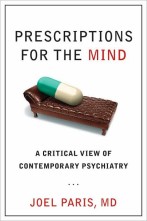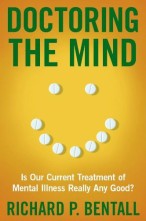Published: March 20, 2012
 March 20th marks the birthday of famed behavioral psychologist B.F. Skinner, who would have turned 108 today. Besides Sigmund Freud, B.F. Skinner was the most famous and perhaps the most influential psychologist of the 20th century. But his own “radical behaviorism”—the idea that behavior is caused solely by environmental factors, never by thoughts or feelings—made him a magnet of controversy, which grew even more intense with the publication of his best-known book, Beyond Freedom & Dignity.
March 20th marks the birthday of famed behavioral psychologist B.F. Skinner, who would have turned 108 today. Besides Sigmund Freud, B.F. Skinner was the most famous and perhaps the most influential psychologist of the 20th century. But his own “radical behaviorism”—the idea that behavior is caused solely by environmental factors, never by thoughts or feelings—made him a magnet of controversy, which grew even more intense with the publication of his best-known book, Beyond Freedom & Dignity.
“He was looked at as beyond the pale by a lot of other psychologists, including me,” says Dean Keith Simonton, a psychologist at the University of California Davis, who was a graduate student at Harvard when Skinner taught there. Some even called Skinner a fascist for his radical views of human malleability. But, says Simonton, “people who knew him would also say, ‘You really should talk to Skinner, because he’s a much broader, more open person than you think.’”
Who was B.F. Skinner? University of Oslo psychologists Geir Overskeid and Cato Grønnerød, along with Simonton, used a variety of source material plus an instrument that scores people on five major personality factors, to describe him and compare him with other eminent scientists. The study, which appears in Perspectives in Psychological Science, a journal published by the Association for Psychological Science, reveals a complex man—but nothing like the monster his detractors called him. [continue reading…]
Published: October 9, 2009
 Steven M. Tovian, PhD, ABPP, is an assistant professor of psychiatry and behavioral sciences at the Feinberg School of Medicine at Northwestern University in Chicago. He is board certified in clinical health and clinical psychology and is in independent practice. He is the former chief psychologist and director of health psychology at the NorthShore University Healthcare System Medical Group. His work focuses on integrating health care – including mental health treatment in medical settings to improve overall health. To mark World Mental Health Day (Oct. 9), the American Psychological Association spoke with Dr. Tovian about the benefits of including psychologists in primary care and other medical settings and how this integration can lower costs for consumers and insurance companies.
Steven M. Tovian, PhD, ABPP, is an assistant professor of psychiatry and behavioral sciences at the Feinberg School of Medicine at Northwestern University in Chicago. He is board certified in clinical health and clinical psychology and is in independent practice. He is the former chief psychologist and director of health psychology at the NorthShore University Healthcare System Medical Group. His work focuses on integrating health care – including mental health treatment in medical settings to improve overall health. To mark World Mental Health Day (Oct. 9), the American Psychological Association spoke with Dr. Tovian about the benefits of including psychologists in primary care and other medical settings and how this integration can lower costs for consumers and insurance companies.
What is integrated health care? [continue reading…]

The first of the ten cards in the Rorschach test
New York Times: Today Noam Cohen asks is Wikepedia jeopardizing one of the oldest continuously used psychological assessment tests? The Rorschach test, a series of 10 inkblot plates created by the Swiss psychiatrist Hermann Rorschach for his book “Psychodiagnostik,” published in 1921, is clearly in the second category.The online encyclopedia Wikipedia has been engulfed in a furious debate involving psychologists who are angry that the 10 original Rorschach plates are reproduced online, along with common responses for each. For them, the Wikipedia page is the equivalent of posting an answer sheet to next year’s SAT. Link to continue reading
Source: New York Times
Tom Dufresne reviews 2 new books in Saturdays Globe and Mail .Prescriptions for the Mind, by Joel Paris; Doctoring the Mind, by Richard Bentall .
The books attack big pharma and lazy doctors for not doing enough to help patients. Sometimes talk, not drugs, is all a person needs.
 In Prescriptions for the Mind, McGill University psychiatrist Joel Paris contends that psychiatry has moved so far toward drug therapy that talk therapy, tarred by the decline of psychoanalysis, has been marginalized. Once a mainstay of any psychiatrist’s identity, training in talk therapy is now more likely to be viewed as career suicide. Paris laments this folly, arguing that psychotherapy should remain a useful part of every psychiatric practice.
In Prescriptions for the Mind, McGill University psychiatrist Joel Paris contends that psychiatry has moved so far toward drug therapy that talk therapy, tarred by the decline of psychoanalysis, has been marginalized. Once a mainstay of any psychiatrist’s identity, training in talk therapy is now more likely to be viewed as career suicide. Paris laments this folly, arguing that psychotherapy should remain a useful part of every psychiatric practice.
 For Bentall, the triumphalist interpretation of biomedical psychiatry’s ascendancy is a con job, driven in part by the “ruthless manipulation” of truth by Big Pharma. Actually, Bentall’s thesis is so old that it’s new again: “Distress in human beings is usually caused by unsatisfactory relationships with other human beings.” Consequently, humane psychiatric treatment should begin by recognizing the complex interaction of biology and environment in the creation of emotional distress.
For Bentall, the triumphalist interpretation of biomedical psychiatry’s ascendancy is a con job, driven in part by the “ruthless manipulation” of truth by Big Pharma. Actually, Bentall’s thesis is so old that it’s new again: “Distress in human beings is usually caused by unsatisfactory relationships with other human beings.” Consequently, humane psychiatric treatment should begin by recognizing the complex interaction of biology and environment in the creation of emotional distress.
Link to read the review
Source: Globe & Mail
 March 20th marks the birthday of famed behavioral psychologist B.F. Skinner, who would have turned 108 today. Besides Sigmund Freud, B.F. Skinner was the most famous and perhaps the most influential psychologist of the 20th century. But his own “radical behaviorism”—the idea that behavior is caused solely by environmental factors, never by thoughts or feelings—made him a magnet of controversy, which grew even more intense with the publication of his best-known book, Beyond Freedom & Dignity.
March 20th marks the birthday of famed behavioral psychologist B.F. Skinner, who would have turned 108 today. Besides Sigmund Freud, B.F. Skinner was the most famous and perhaps the most influential psychologist of the 20th century. But his own “radical behaviorism”—the idea that behavior is caused solely by environmental factors, never by thoughts or feelings—made him a magnet of controversy, which grew even more intense with the publication of his best-known book, Beyond Freedom & Dignity. Steven M. Tovian, PhD, ABPP, is an assistant professor of psychiatry and behavioral sciences at the Feinberg School of Medicine at Northwestern University in Chicago. He is board certified in clinical health and clinical psychology and is in independent practice. He is the former chief psychologist and director of health psychology at the NorthShore University Healthcare System Medical Group. His work focuses on integrating health care – including mental health treatment in medical settings to improve overall health. To mark World Mental Health Day (Oct. 9), the American Psychological Association spoke with Dr. Tovian about the benefits of including psychologists in primary care and other medical settings and how this integration can lower costs for consumers and insurance companies.
Steven M. Tovian, PhD, ABPP, is an assistant professor of psychiatry and behavioral sciences at the Feinberg School of Medicine at Northwestern University in Chicago. He is board certified in clinical health and clinical psychology and is in independent practice. He is the former chief psychologist and director of health psychology at the NorthShore University Healthcare System Medical Group. His work focuses on integrating health care – including mental health treatment in medical settings to improve overall health. To mark World Mental Health Day (Oct. 9), the American Psychological Association spoke with Dr. Tovian about the benefits of including psychologists in primary care and other medical settings and how this integration can lower costs for consumers and insurance companies.
 In Prescriptions for the Mind, McGill University psychiatrist Joel Paris contends that psychiatry has moved so far toward drug therapy that talk therapy, tarred by the decline of psychoanalysis, has been marginalized. Once a mainstay of any psychiatrist’s identity, training in talk therapy is now more likely to be viewed as career suicide. Paris laments this folly, arguing that psychotherapy should remain a useful part of every psychiatric practice.
In Prescriptions for the Mind, McGill University psychiatrist Joel Paris contends that psychiatry has moved so far toward drug therapy that talk therapy, tarred by the decline of psychoanalysis, has been marginalized. Once a mainstay of any psychiatrist’s identity, training in talk therapy is now more likely to be viewed as career suicide. Paris laments this folly, arguing that psychotherapy should remain a useful part of every psychiatric practice.  For Bentall, the triumphalist interpretation of biomedical psychiatry’s ascendancy is a con job, driven in part by the “ruthless manipulation” of truth by Big Pharma. Actually, Bentall’s thesis is so old that it’s new again: “Distress in human beings is usually caused by unsatisfactory relationships with other human beings.” Consequently, humane psychiatric treatment should begin by recognizing the complex interaction of biology and environment in the creation of emotional distress.
For Bentall, the triumphalist interpretation of biomedical psychiatry’s ascendancy is a con job, driven in part by the “ruthless manipulation” of truth by Big Pharma. Actually, Bentall’s thesis is so old that it’s new again: “Distress in human beings is usually caused by unsatisfactory relationships with other human beings.” Consequently, humane psychiatric treatment should begin by recognizing the complex interaction of biology and environment in the creation of emotional distress. 